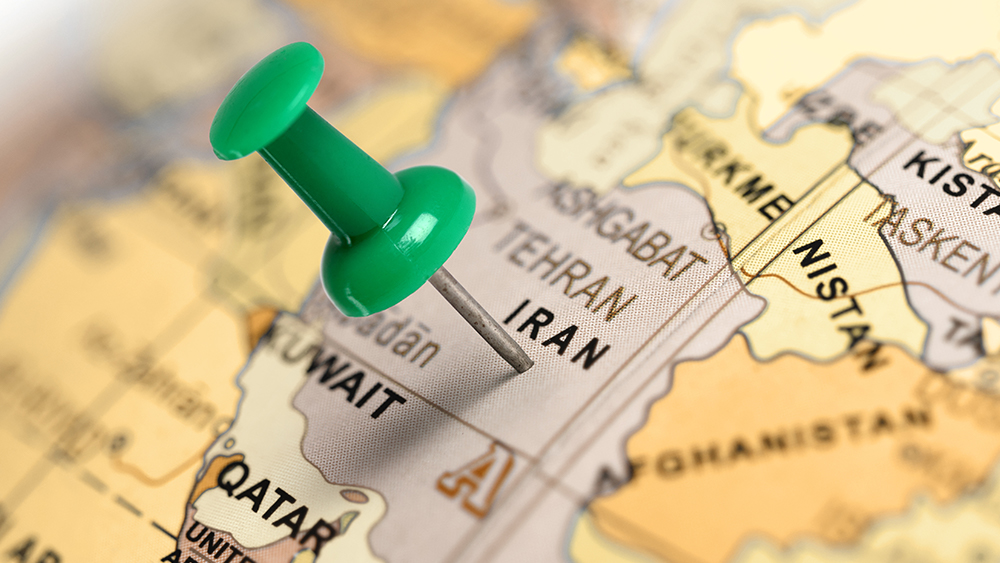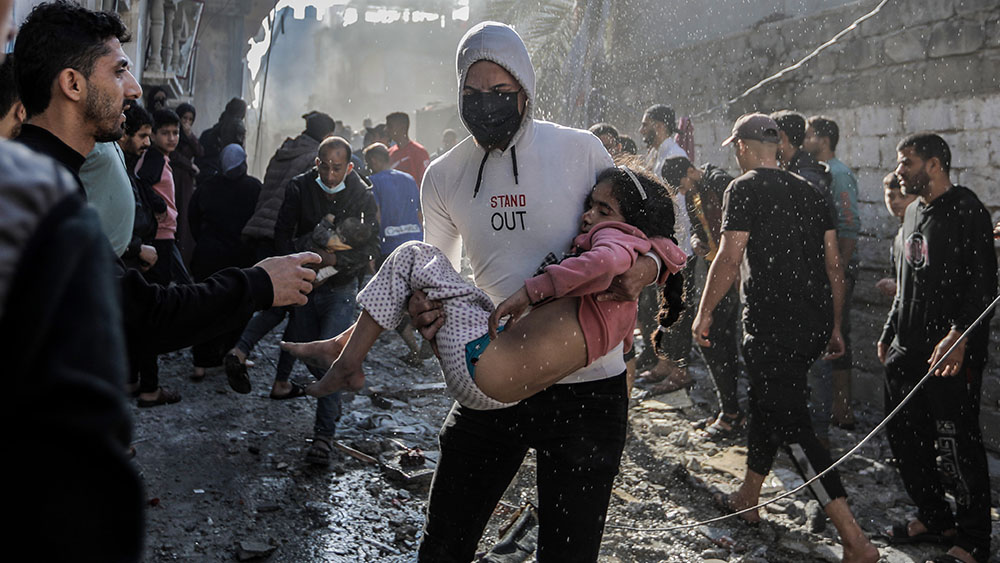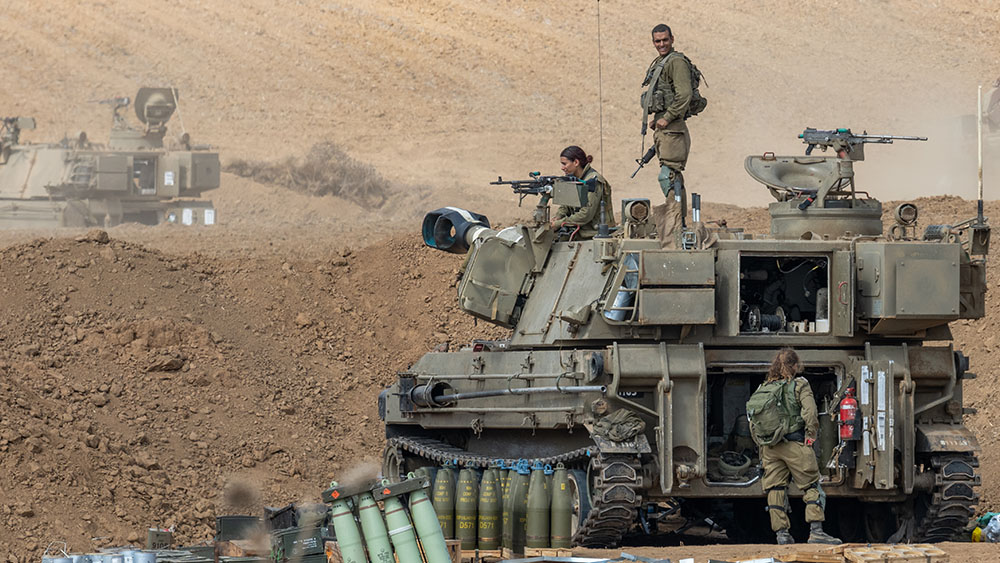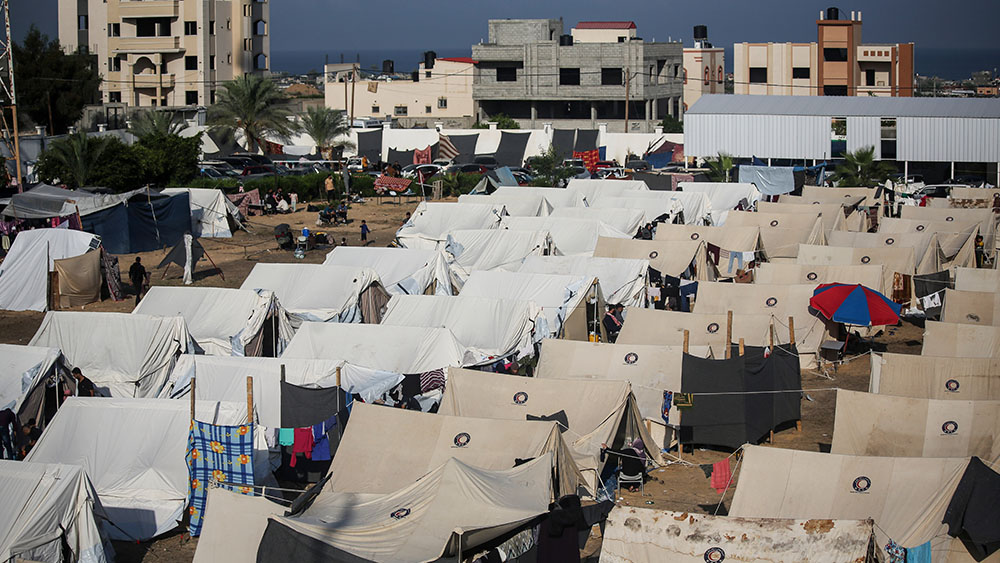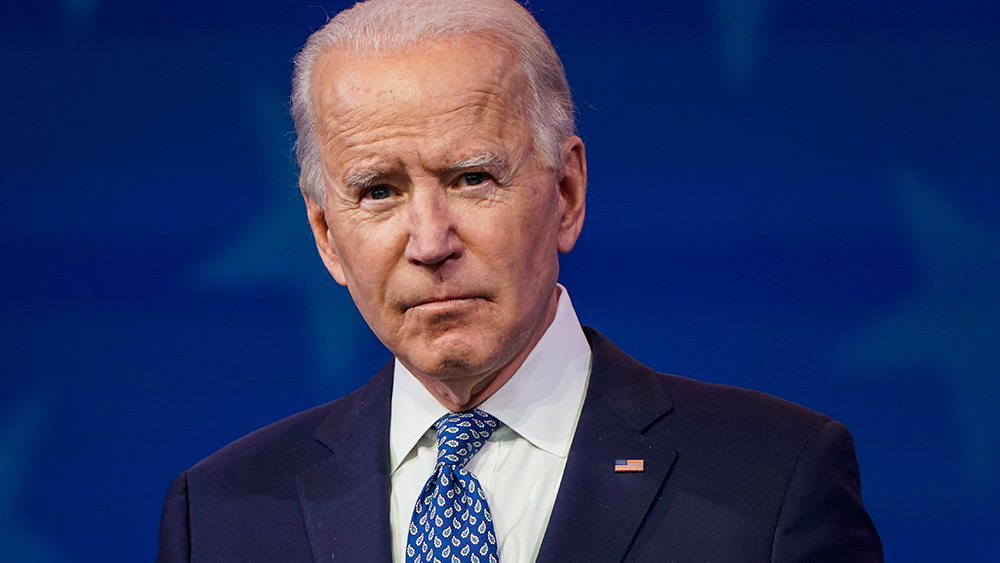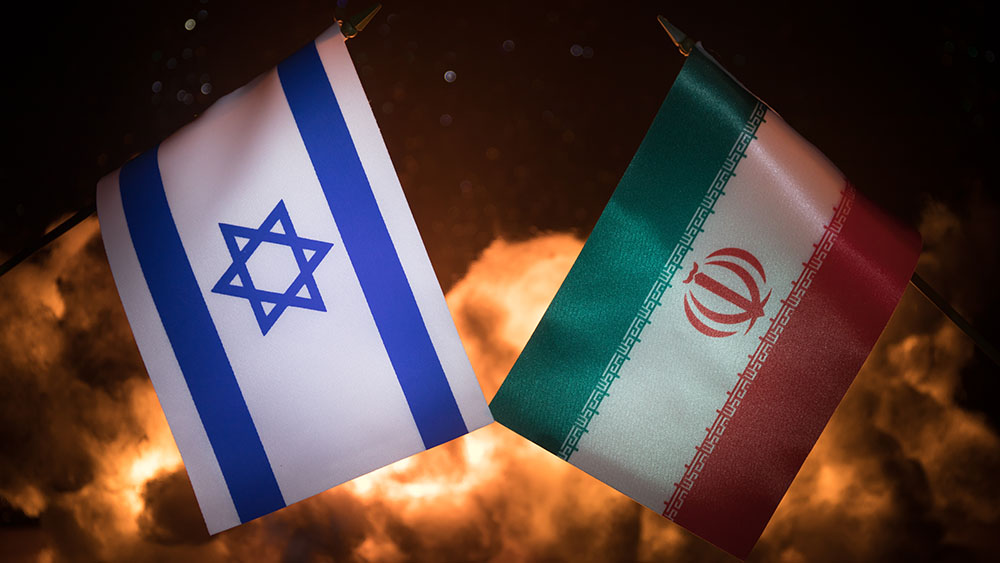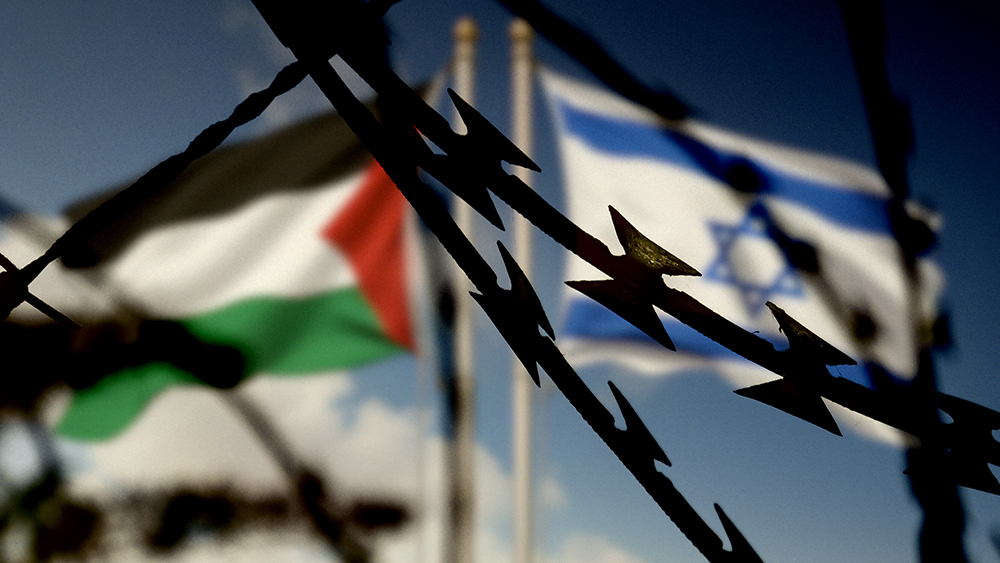An eye for an eye: Iran warns that it will destroy Israeli nuclear facilities if its own are targeted
04/22/2024 / By Richard Brown
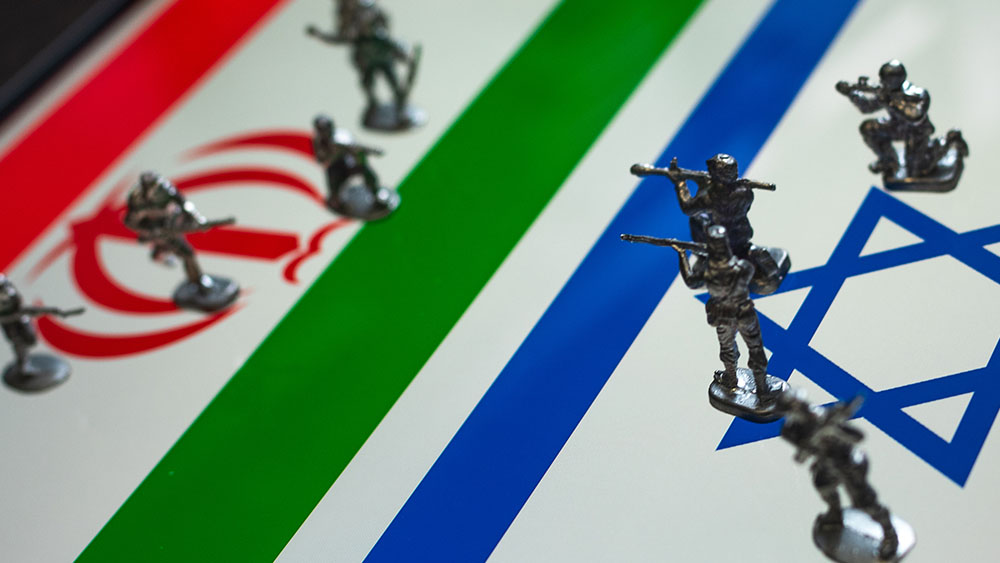
A senior officer from Iran’s Islamic Revolutionary Guard Corps (IRGC) has issued a warning, stating that Tehran possesses the capability to target Israeli nuclear facilities if its own are attacked, as reported by local media.
Tensions in the Middle East have heightened this month following an Israeli airstrike on the Iranian embassy in Damascus, Syria on April 1, resulting in the deaths of seven IRGC officers, including a general with the special forces unit the Quds Force.
In retaliation, Tehran launched a substantial barrage of over 300 drones and missiles, with most reportedly intercepted by Israel and its Western allies.
IRGC Brig. Gen. Ahmad Haghtalab, responsible for safeguarding Iranian sites, said: “The Israeli nuclear compounds are identified, and we possess the necessary information about all the targets to respond. We have the capability to launch powerful missiles and destroy those targets.”
While Tehran has declared the incident resolved, Israel has vowed to retaliate without disclosing specifics. Reports are suggesting that the Israeli Defense Forces is contemplating further military action, potentially targeting Iran’s nuclear industry. Haghtalab hinted at the possibility of hitting the Israeli nuclear industry in retaliation. (Related: Iran threatens larger attack if Israel doesn’t back off with its aggression.)
The Israeli nuclear industry comprises both a public civilian aspect and a military dimension, Israel, per government policy, refuses to confirm or deny the latter’s existence.
According to the Stockholm International Peace Research Institute, Israel is estimated to possess around 80 nuclear weapons, including 30 gravity bombs and 50 warheads that can be launched by medium-range ballistic missiles. However, Haghtalab did not specify which specific sites Iran might target in its hypothetical operation.
Israel has long accused Iran of clandestinely developing its nuclear capabilities. Israel’s representative at the United Nations, Gilad Erdan, claimed recently that Tehran was mere weeks away from constructing a nuclear weapon. However, these assertions were refuted by the International Atomic Energy Agency (IAEA).
The Iranian leadership has consistently emphasized its stance against weapons of mass destruction, considering them incompatible with Islamic principles. Nevertheless, Haghtalab suggested that Tehran might reconsider its nuclear doctrine and policies if Israel continues to threaten its nuclear facilities.
Haghtalab highlighted the norm that nuclear sites are typically considered off-limits for military action. However, he argued that Israel’s attack on the embassy, a diplomatic mission protected by international law, demonstrates its disregard for established norms and rules of engagement.
Israel may be targeting Iranian nuclear sites
Meanwhile, Iran claims to have intercepted three quadcopters launched within its borders, while reports indicate explosions at military sites in Syria, signaling potential Israeli retaliation for recent missile and drone attacks on its territory.
The quadcopters were allegedly shot down in Iran’s central province of Isfahan, home to military bases and the country’s primary nuclear facilities at Natanz. However, the IAEA confirmed that Iran’s nuclear sites remained unaffected.
Conflicting reports emerged, with the United States suggesting an Israeli missile attack, Iran denying the use of missiles and stating only small crafts were shot down, while Israel remained silent.
Despite Iran’s preemptive strike last week, which it claimed exceeded expectations, Israel may hesitate to directly target Iranian nuclear sites.
Strategic and tactical considerations suggest Israel would likely operate alone, as the U.S. has refrained from active participation in such attacks and publicly cautioned against them. Tehran’s warnings to Washington and summoning of the Swiss envoy underscore Iran’s determination to deter foreign intervention.
Moreover, Iranian nuclear facilities are fortified, with some located deep underground, making them challenging targets. Recent satellite imagery suggests progress in constructing new underground sites resistant to conventional airstrikes.
Even if Israeli jets breach Iranian defenses, the extent of potential damage remains uncertain, as Iran has advanced its nuclear capabilities despite past sabotage attempts.
Watch this video claiming to be an attempted Israeli attack on an Iranian military base thwarted by air defenses.
This video is from the channel The Prisoner on Brighteon.com.
More related stories:
Israel vows to retaliate against Iran with new devastating strike (World War 3).
TIT FOR TAT: Israel vows to respond to Iran’s retaliatory missile and drone strikes.
Iran strikes Israel as region plunges into escalation cycle that could end in NUCLEAR WAR.
Iran warns of retaliation against U.S. forces in the Middle East if Biden supports Israel militarily.
Israel to destroy Iran’s NUCLEAR facilities if Tehran follows through on retaliation threats.
Sources include:
Submit a correction >>
Tagged Under:
Ahmad Haghtalab, big government, chaos, conflict, dangerous, fascism, Iran, Iran-Israel conflict, IRGC, Islamic Revolutionary Guard Corps, Israel, Middle East, military tech, national security, nuclear, nuclear facilities, nuclear war, nuclear weapons, terrorism, violence, weapons technology, World War III
This article may contain statements that reflect the opinion of the author
RECENT NEWS & ARTICLES
COPYRIGHT © 2023 IsraelCollapse.com
All content posted on this site is protected under Free Speech. IsraelCollapse.com is not responsible for content written by contributing authors. The information on this site is provided for educational and entertainment purposes only. It is not intended as a substitute for professional advice of any kind. IsraelCollapse.com assumes no responsibility for the use or misuse of this material. All trademarks, registered trademarks and service marks mentioned on this site are the property of their respective owners.

